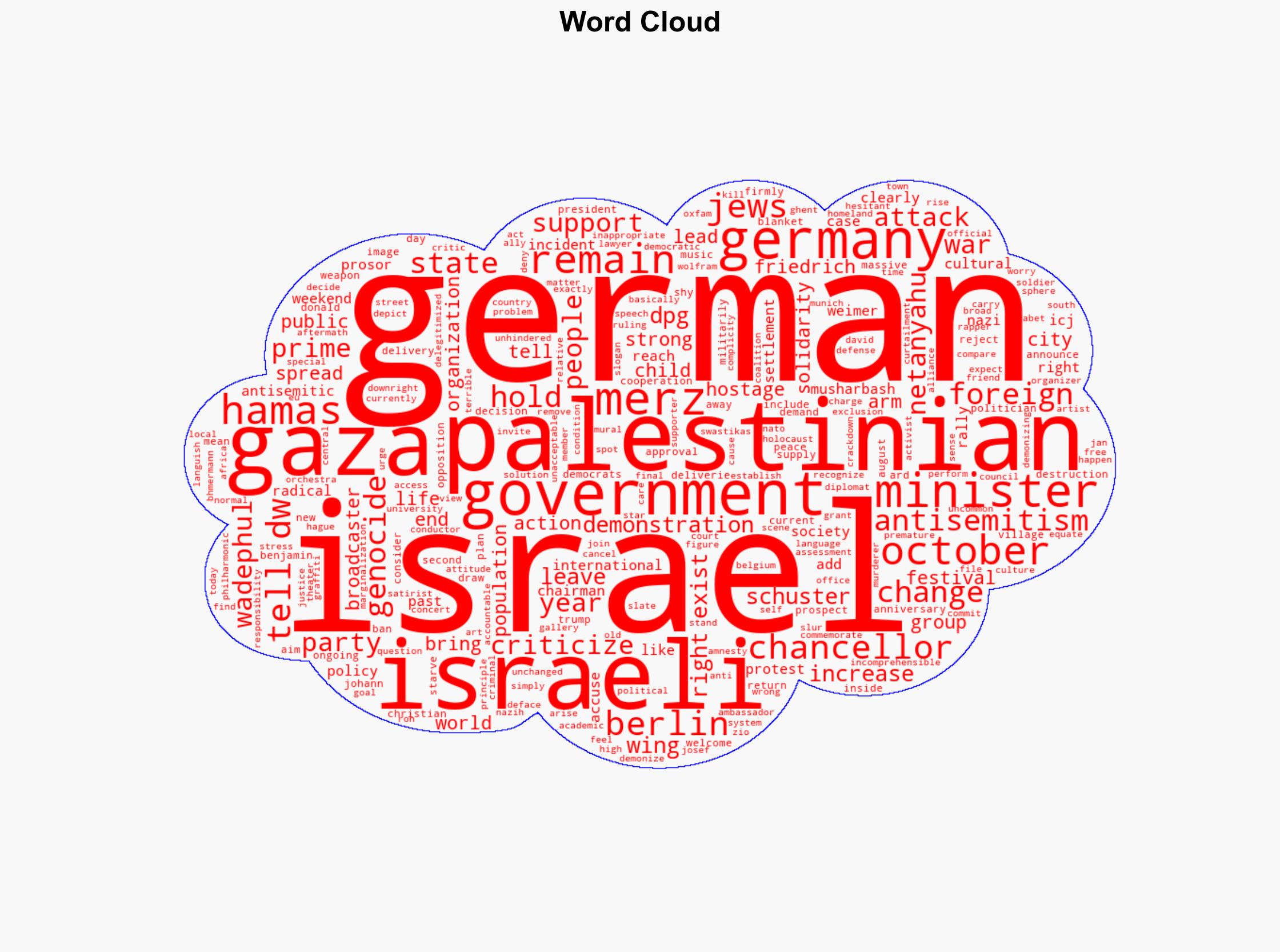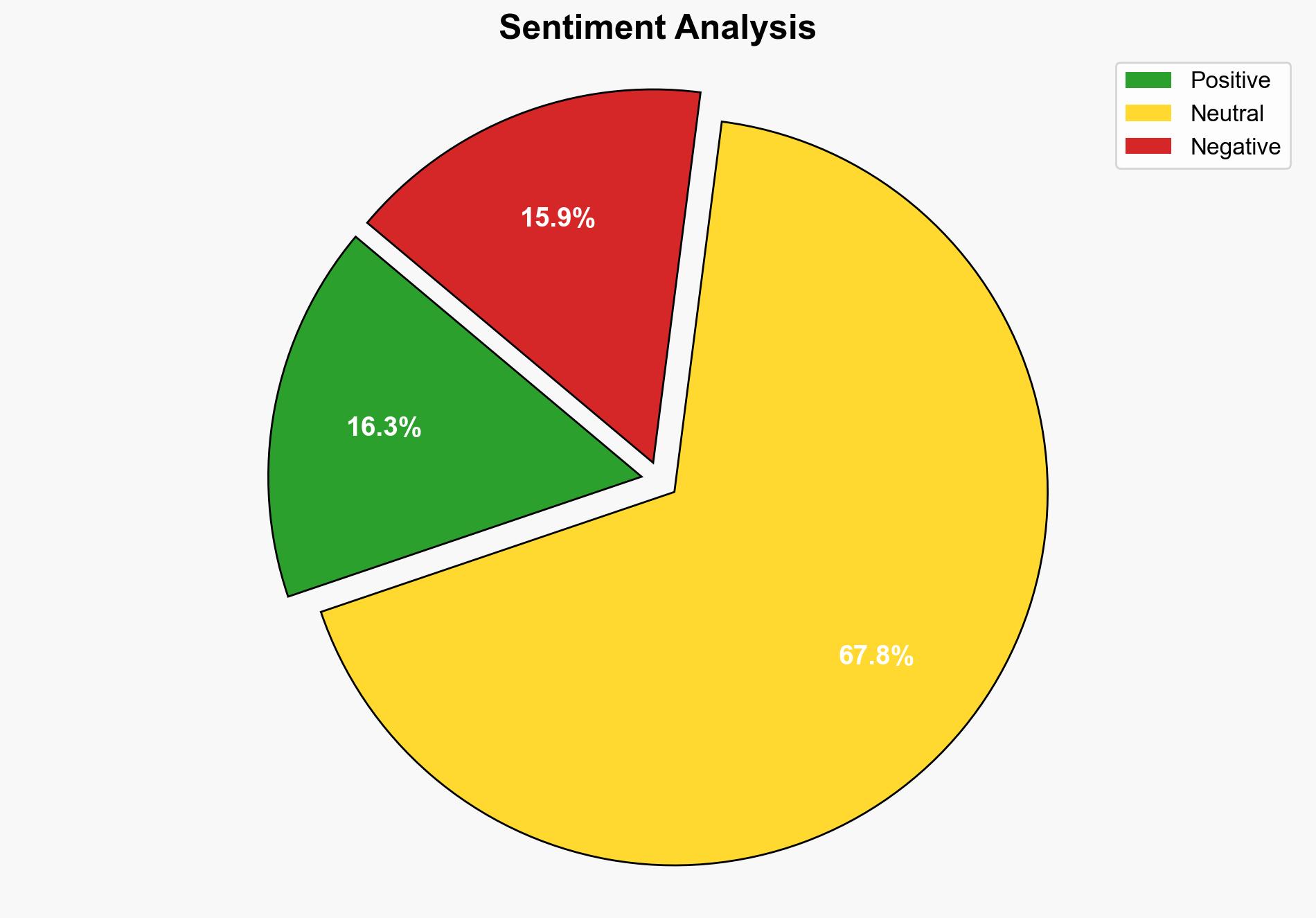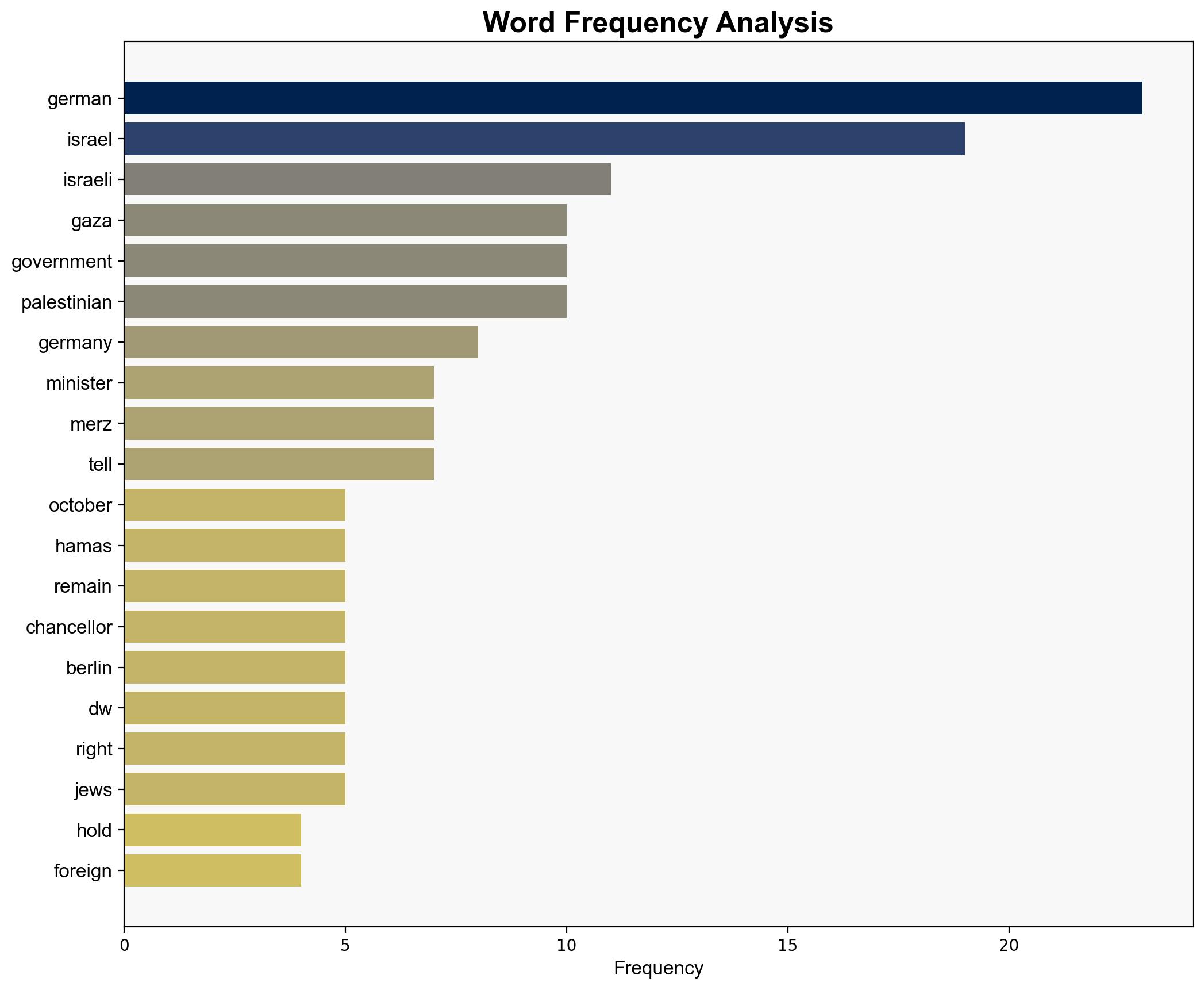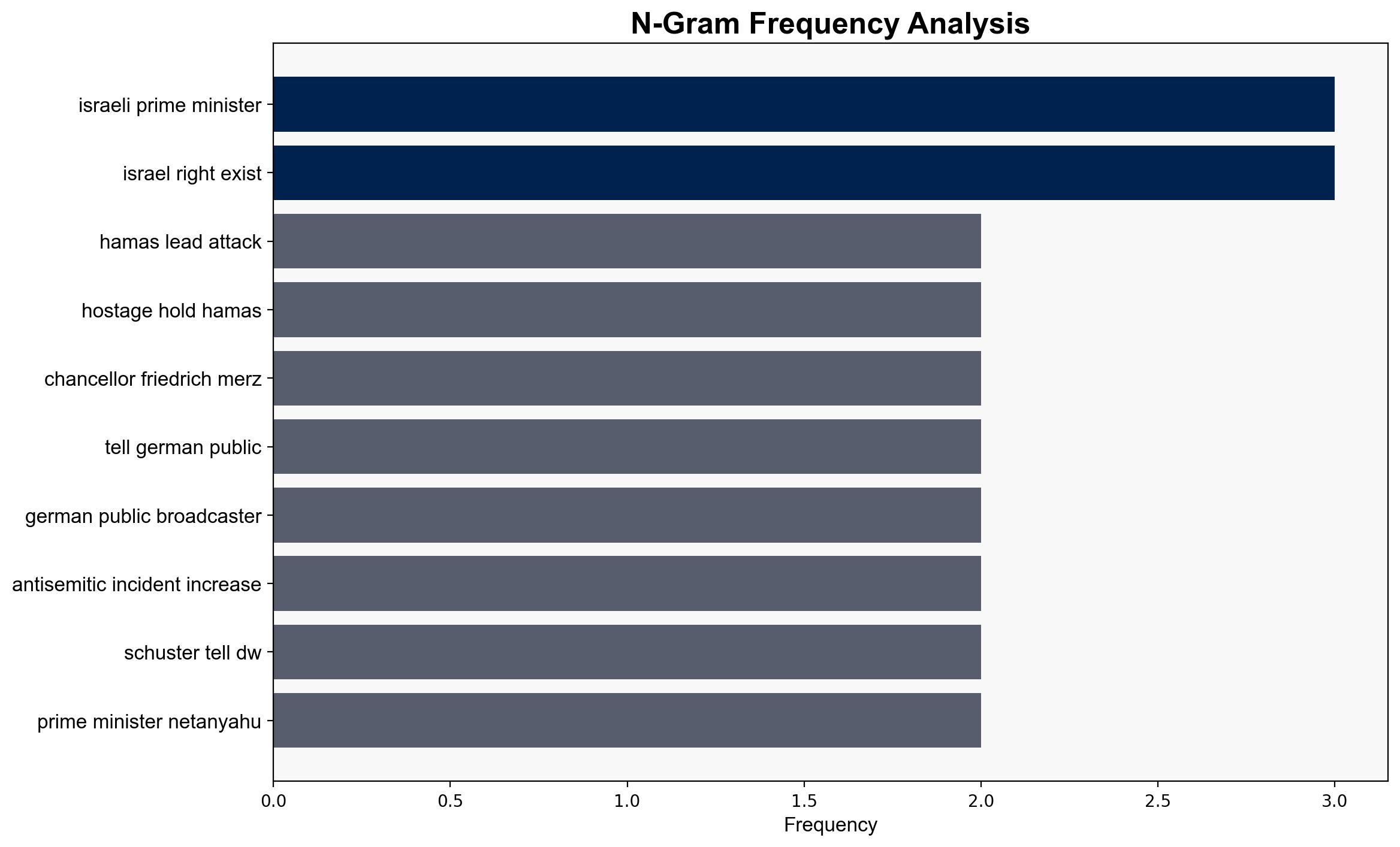Life in Germany since October 7 2023 and the Gaza war – DW (English)
Published on: 2025-10-07
Intelligence Report: Life in Germany since October 7, 2023, and the Gaza War – DW (English)
1. BLUF (Bottom Line Up Front)
The strategic judgment indicates a moderate confidence level that Germany’s political landscape is experiencing increased polarization due to the Gaza conflict. The hypothesis that Germany will maintain its strong alliance with Israel, despite internal and external pressures, is better supported. Recommended action includes diplomatic engagement to address internal dissent and reinforce Germany’s international commitments.
2. Competing Hypotheses
1. **Hypothesis A**: Germany will continue to support Israel unconditionally, maintaining its historical stance due to the Holocaust legacy and current political leadership’s alignment with Israel.
2. **Hypothesis B**: Germany will face increasing internal pressure to reassess its support for Israel, driven by rising antisemitism and public protests, potentially leading to a more balanced stance in the Israeli-Palestinian conflict.
Using ACH 2.0, Hypothesis A is more supported by the current political statements and actions of Chancellor Friedrich Merz and the German government’s historical commitment to Israel. Hypothesis B is less supported but plausible, given the rise in antisemitic incidents and public protests.
3. Key Assumptions and Red Flags
– **Assumptions**: Germany’s political leadership will prioritize historical alliances over emerging public dissent. The international community’s stance will not significantly shift Germany’s policy.
– **Red Flags**: Rising antisemitic incidents and public protests could indicate a shift in public opinion that may pressure political leaders to alter their stance.
– **Blind Spots**: The potential for significant geopolitical shifts, such as changes in EU or NATO policies, is not fully considered.
4. Implications and Strategic Risks
– **Political Risks**: Internal polarization could weaken Germany’s political cohesion and influence its foreign policy decisions.
– **Geopolitical Risks**: A shift in Germany’s stance could affect its relations with Israel and other EU member states, potentially impacting EU unity.
– **Social Risks**: Rising antisemitism and public protests could lead to increased social unrest and security challenges.
5. Recommendations and Outlook
- Engage in diplomatic dialogues to address internal dissent and reinforce Germany’s commitment to international alliances.
- Monitor public sentiment and antisemitic incidents to anticipate potential policy shifts.
- Scenario Projections:
- Best Case: Germany successfully balances internal pressures with international commitments, maintaining stability.
- Worst Case: Internal dissent leads to significant policy shifts, straining international relations.
- Most Likely: Germany maintains its current stance with minor adjustments to address public concerns.
6. Key Individuals and Entities
– Friedrich Merz
– Johann Wadephul
– Ron Prosor
– Josef Schuster
– Wolfram Weimer
7. Thematic Tags
national security threats, geopolitical dynamics, public dissent, antisemitism, EU relations




